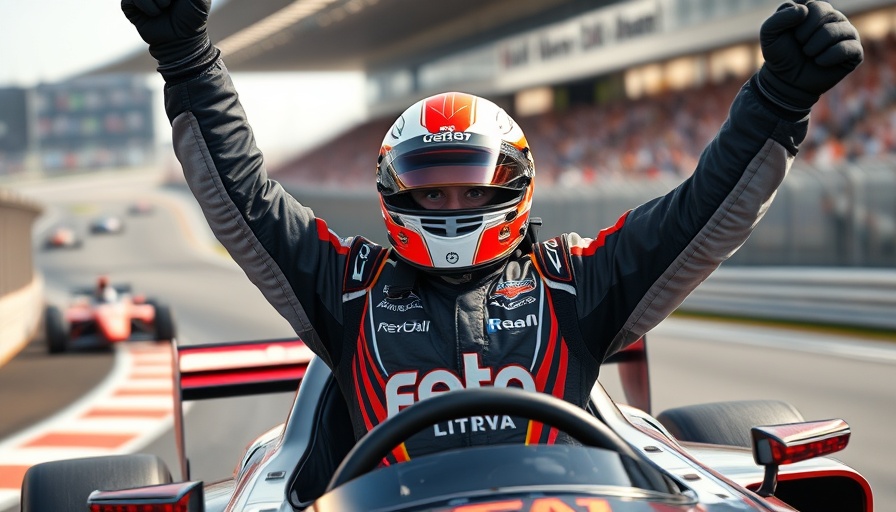
Red Bull Racing's Transition: A Major Shift in Leadership
In a stunning move that has sent waves through the Formula 1 community, Red Bull Racing announced the immediate departure of Christian Horner, marking an end to a two-decade collaboration with Dr. Helmut Marko. Known for his significant contributions since Red Bull's entry into Formula 1 in 2025, Horner leaves a legacy defined by unparalleled success with six constructors' and eight drivers' world championship titles. The abrupt change follows tumultuous times marked by internal challenges, especially after the passing of team owner Dietrich Mateschitz.
The Achievements Under Horner’s Leadership
Reflecting on their long-standing relationship, Dr. Helmut Marko expressed gratitude for their shared journey, emphasizing the countless accolades they achieved together, including nurturing World Drivers' Champions and Grand Prix winners. This partnership not only shaped the team’s identity but also cemented Red Bull as a dominant force in motorsport. It is crucial to recognize that Horner’s strategic prowess has significantly influenced the high-performance automotive sector, inspiring car dealerships and manufacturers alike.
Future Directions and Potential Impacts
As Red Bull navigates this leadership transition, the importance of their ongoing commitment to performance and excellence cannot be overstated. With twelve races remaining this season, Dr. Marko affirmed that the team continues to pursue the Drivers’ Championship vigorously. This determination reflects a broader industry trend towards maintaining high performance amidst organizational changes. The loyalty previously shown to Horner may also mark a pivotal moment for how high-end car brands, including performance sedans and luxury sports cars, approach team leadership and innovation.
The Road Ahead: What’s Next for Red Bull?
With the shocking news of Horner's exit, the F1 community watches closely to see how Red Bull adapts and performs under new leadership. The strategic decisions made in the coming months will not only shape the team's future but could also resonate across the automotive and sports industries. What new innovations might emerge? How will competitors react? These questions linger as the Red Bull Racing team embarks on a new chapter, encouraged by a legacy of past triumphs.
As fans and industry followers, staying informed about these evolving narratives can enhance our understanding and engagement with Formula 1 and its far-reaching impact on both high-end automotive cultures and the broader sporting world.
 Add Row
Add Row  Add
Add 

 Add Row
Add Row  Add Element
Add Element 




Write A Comment